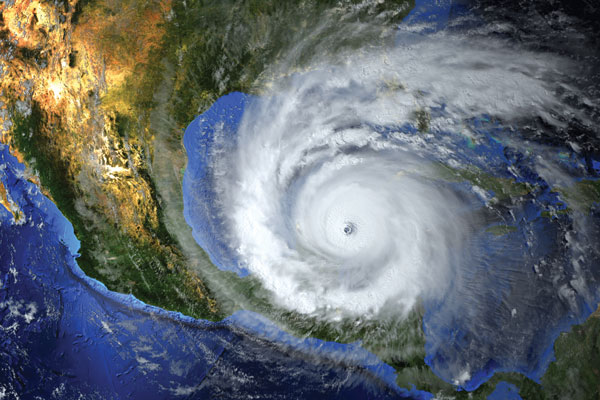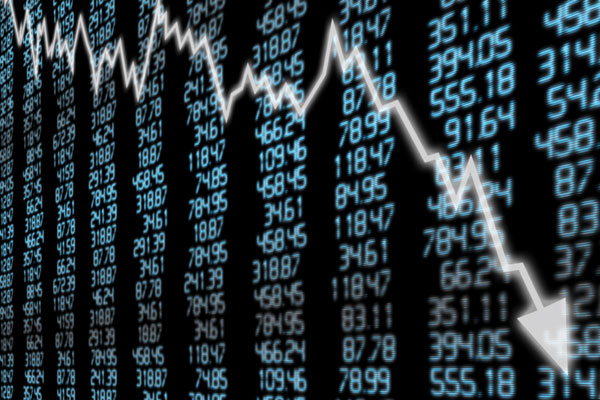Companies across the globe face many risks, but business leaders in different regions measure the severity of these threats differently, according to a new report.
A new report by the World Economic Forum reveals what executives across the globe consider to be the greatest risks to business, and the results showed a wide range of concerns.
Around the globe, on average, executives think fiscal crises are the top risk, the report said.
"The signals of a global economic recession in the short term are strong, and the impact that such a shock would have on current government policies is worrying the global business community," the report said. "It is also a major cause for concern that stakeholders worldwide might not be able to come together, if coordination has not begun already, to craft a global response to such a risk."
Other concerns vary by region. In the oil-rich Middle East and North Africa, for example, "energy price shock" is the biggest worry. In South Asia, they worry more about potential water crises. And in Latin America and the Caribbean, business leaders cite the "failure of national governance" as the top risk.
The report, based on the forum's annual Executive Opinion Survey, relied on 12,879 responses collected from business leaders around the world from January to April.
The following are the top 10 risks cited by North American business leaders:
10. Natural Disasters
Businesses in North America are more concerned about natural disasters than global businesses in general. In Europe and Eurasia, for example, this risk didn't make the top 10. It was, however, the number one risk cited by businesses in East Asia and the Pacific.

9. Extreme Weather Events
This is another category that made the top 10 in North America and East Asia/Pacific, but not in other regions. While damaging hurricanes and droughts have had an impact on the U.S. economy, Canada has had events of its own. "Extreme weather has plagued the region once again this year, as many Canadians confronted 'polar vortex' temperatures and one of the snowiest Januaries on record, while the coasts experienced unusually moderate weather," the report said.

8. Failure Of Climate Change Adaptation
This is a growing issue in Canada, where temperatures are rising twice as fast as those in the rest of the world, according to the report. "One recent study found that Canada could lose more than 13% of its GDP by 2100 due to climate change," the report said.

7. Failure Of National Governance
This risk moved up six places in the rankings this year, which the report's authors partially attributed to the widening political divide in the U.S. and the approach of the 2020 presidential elections.

6. Fiscal Crisis
The report noted that U.S. public debt is projected to rise from 79% of GDP to 95% in 2029, which would be the highest since just after World War II. "Combined with an expected slowdown in economic growth, conditions are ripe for increased fiscal risks," the report said.

5. Failure Of Critical Infrastructure
The report cited a general U.S. shortfall in infrastructure spending. The most recent American Society of Civil Engineers report card gave the U.S. a D+ on its infrastructure stock, which is only slightly better than “unfit for purpose.”

4. Critical Information Infrastructure Breakdown
"Cyber-related threats are ... likely to contribute to concerns about critical information infrastructure, as these systems become increasingly connected to the internet of things," the report said.

3. Terrorist Attacks
Terrorist attacks curiously made the top five list of concerns among businesses in North America, but the risk did not make the top 10 in Europe, which has had its share of terrorist attacks in recent years. The report's authors theorized that this could be due to a rise in state-sponsored cyberattacks and mass shootings in the U.S.

2. Data Fraud Or Theft
Data security is a burning issue among North American businesses because of the continued hacking attacks against businesses and government entities, the report said. In July, for example, Capital One revealed that personal data tied to 100 million individuals, including Social Security numbers, were compromised by hackers, the report noted. "Far from being the only target, as of August 2019, there had already been 3,494 successful intrusions against U.S. financial institutions," the report said.

1. Cyberattacks
This appears to be the issue most on the minds of business leaders in developed economies; it was the number one risk in Europe and the number two risk in East Asia and the Pacific. Besides businesses, local governments in the U.S. have been shown to be vulnerable to ransomware attacks. The security of U.S. elections is also in question. "The persistence of this risk at the top of mind for business leaders in these regions highlights the growing sophistication and proliferation of cyberattacks, and the corresponding exposure businesses are facing," the report said.

The full report can be viewed here.